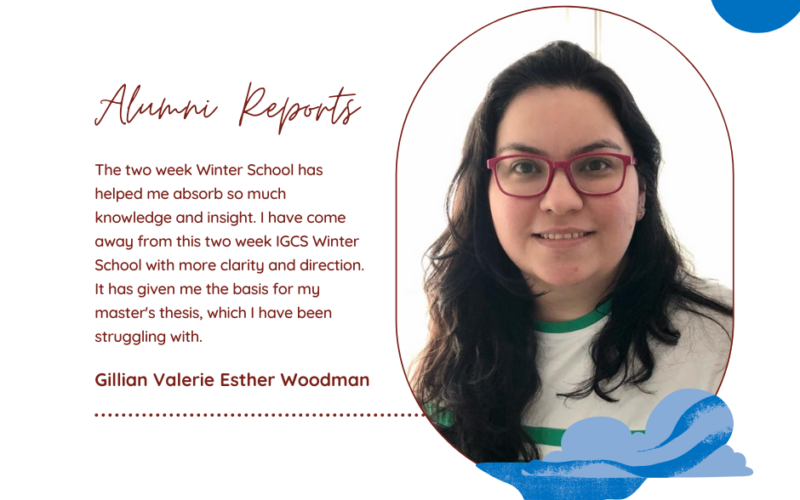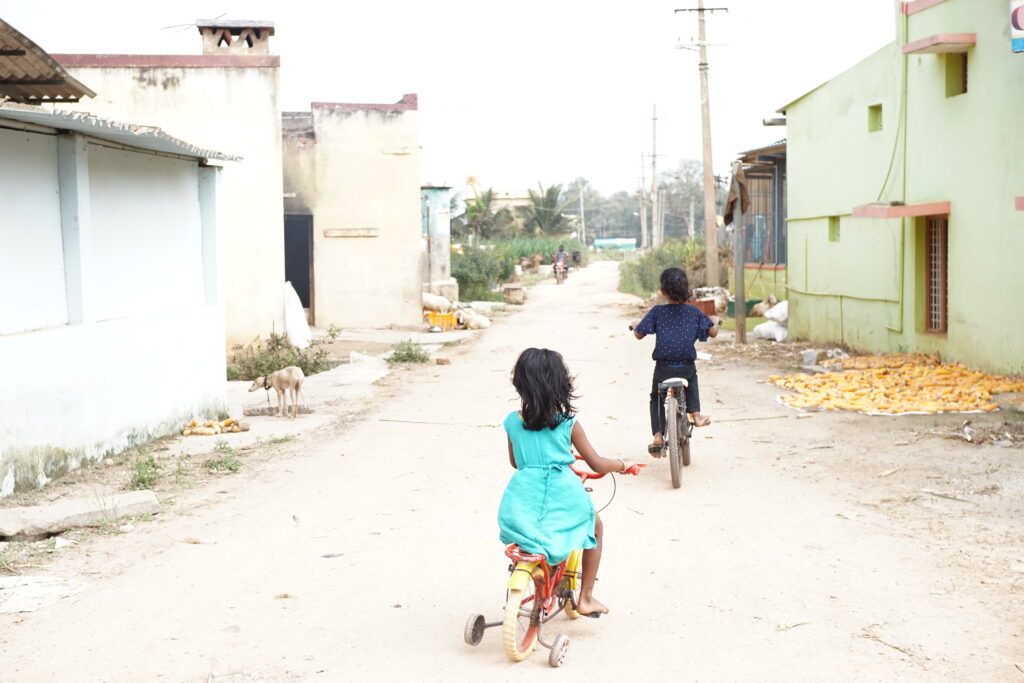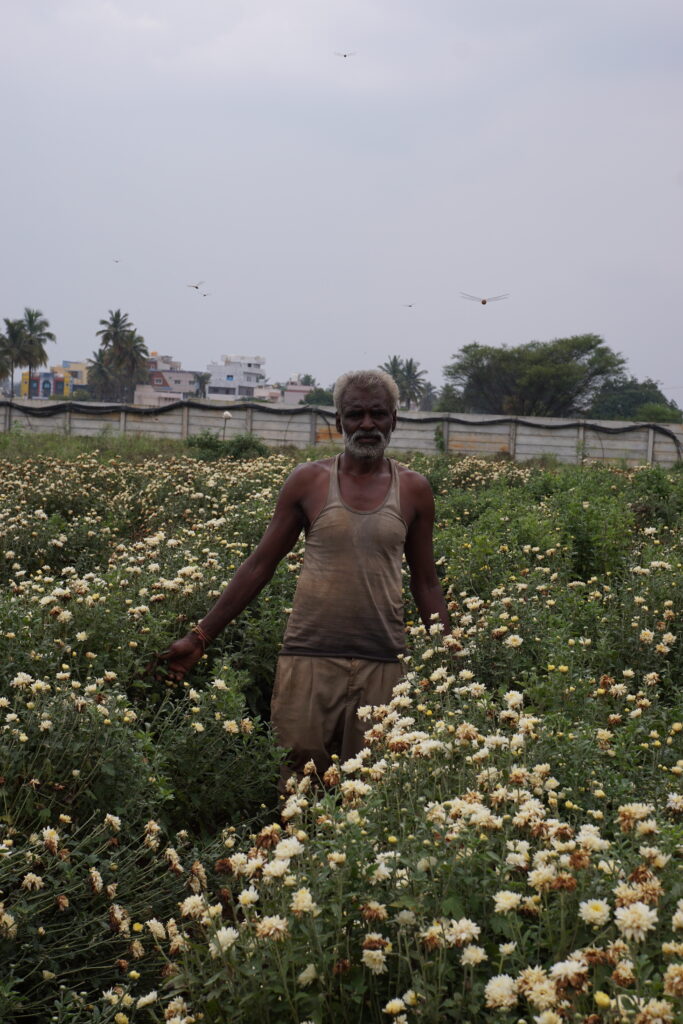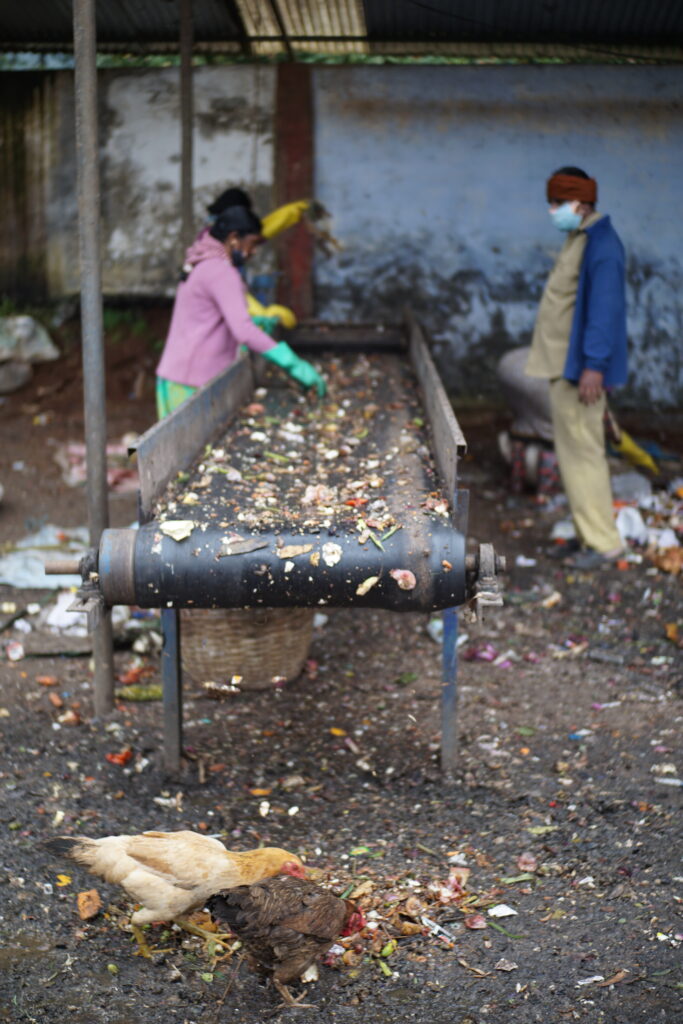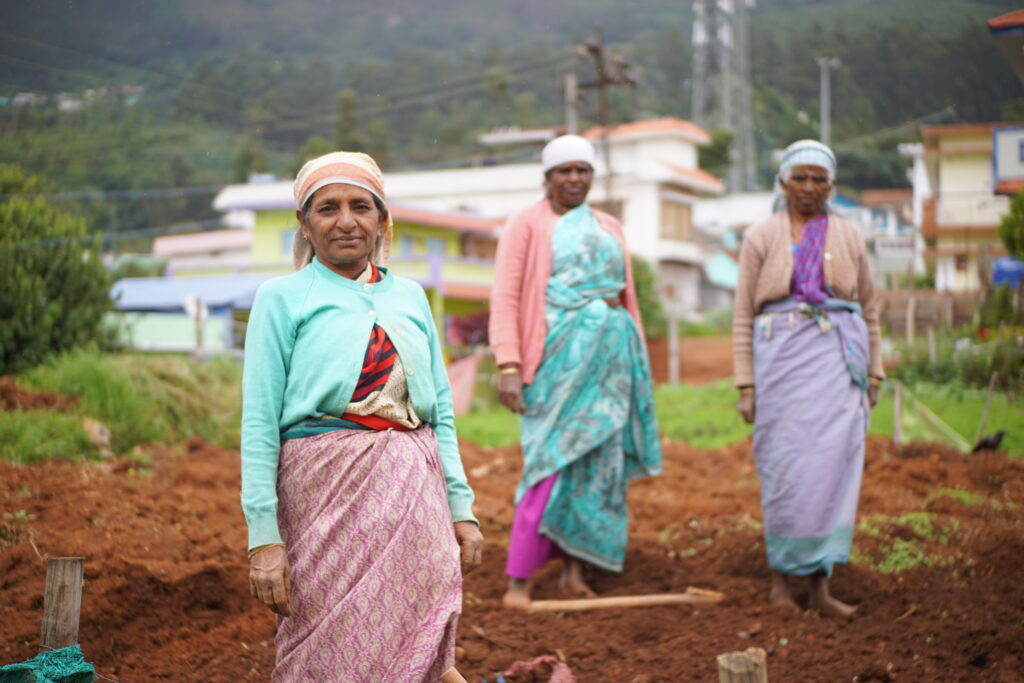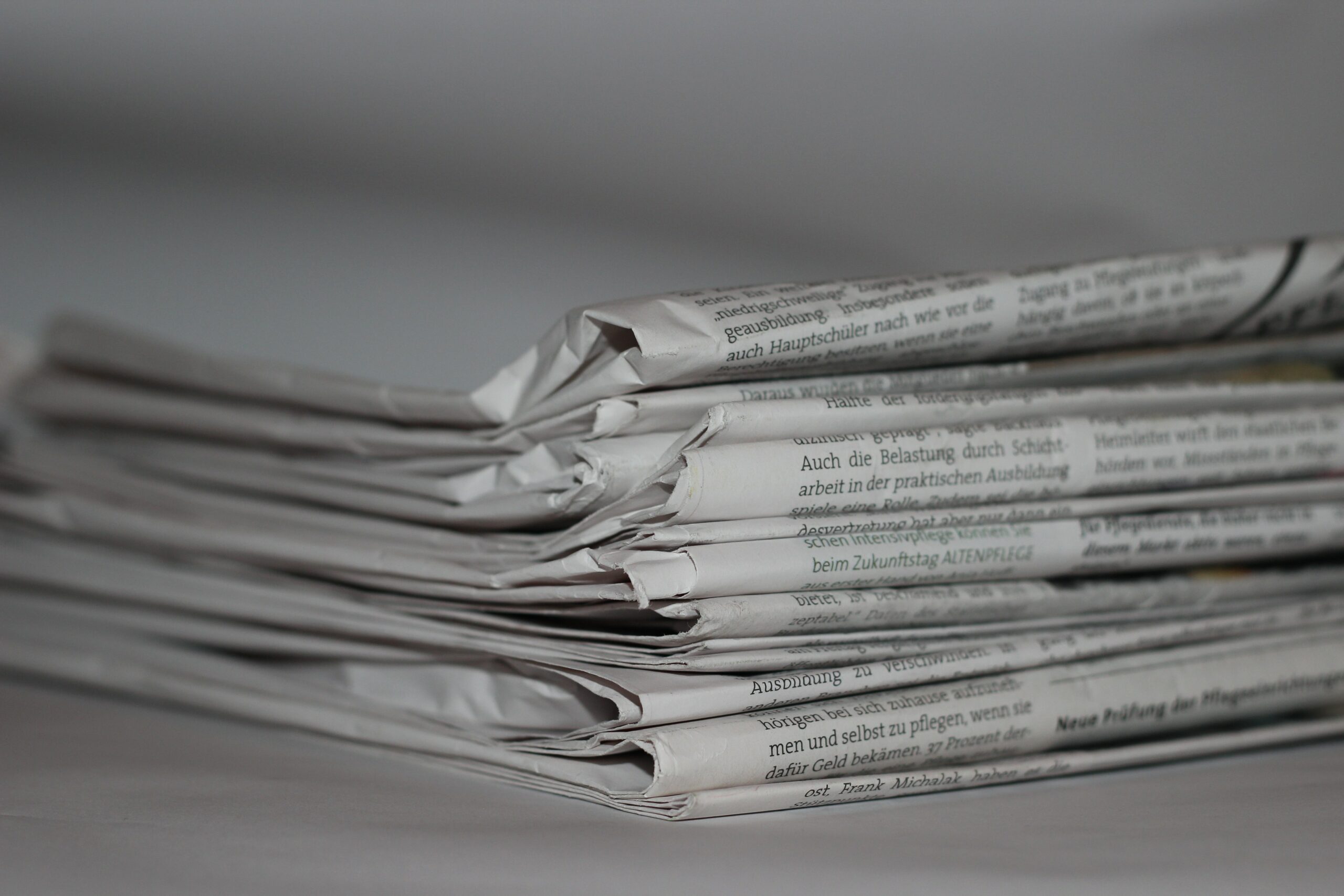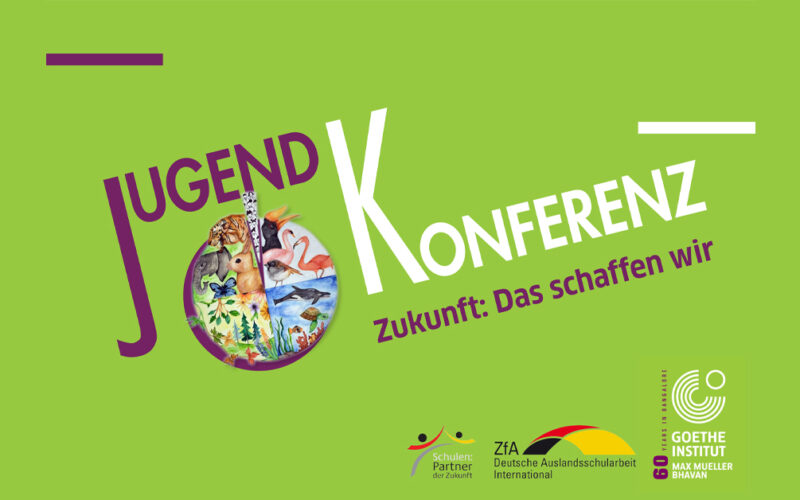The IGCS Winter School 2022 began online on the 21st of February, and it took place entirely digitally. It was a great opportunity to participate in this Winter School, particularly with the topics Sustainable Waste Management for a Circular Economy. The school participants were a mix of students from Indian and German Universities. There were so many varied educational backgrounds of the students from Environmental sciences, engineering, sciences and even media informatics. The diverse fields of study and interests offered a very informative exchange of ideas, thoughts, and processes.
The IGCS Winter School allowed me to dive deep into solid waste management systems, particularly in Germany and India. Its many facets to a circular economy. The two-week school had three main parts – Lectures, Panel discussions and Group Work. The sessions included 13 lectures and three panel discussions with experts from many fields in Solid Waste Management. The 3rd Panel discussion had the school participants lead the discussion topics that were decided on by a poll. Another unique feature of the school was the nine mini-lectures from fellow students participants, each with interesting research work and subjects from varied backgrounds. This was an exciting and informative addition to the school. The final part with which the school culminated was the 7 Group projects that covered a multitude of topics relevant to the school’s theme.
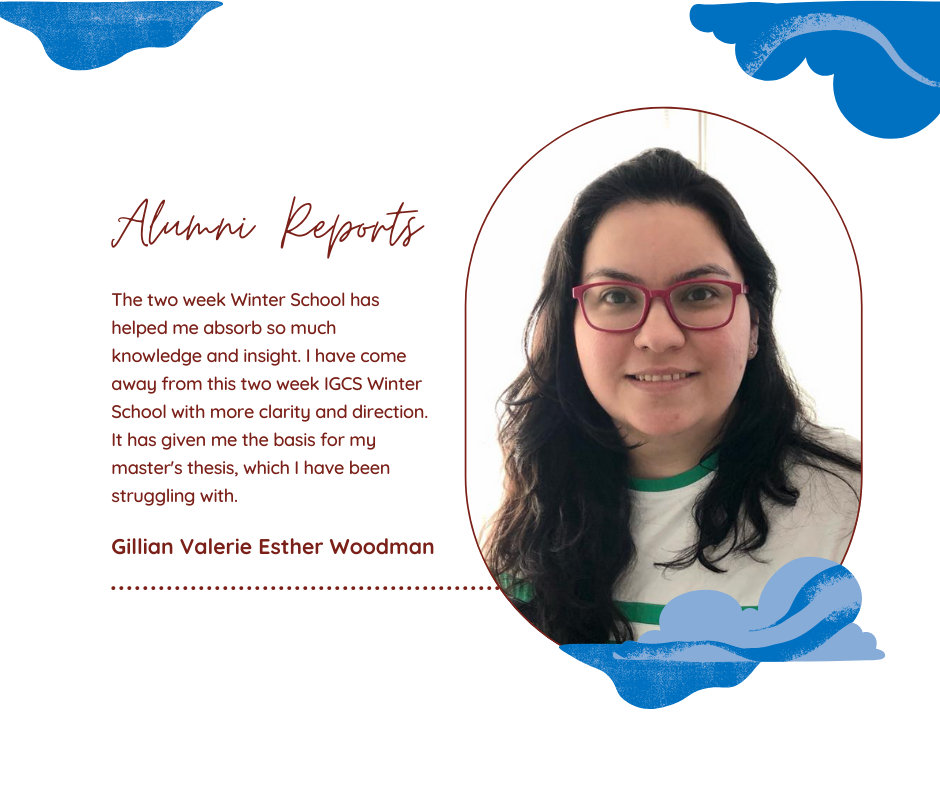
The lecture sessions from numerous experts and scholars proved to be very educational and sparked many exciting discussions. As an Indian student studying in Germany, it was eye-opening to know the different types of waste resource management and waste management companies for areas such as energy, textiles etc. The talk on the contribution of solid waste management in the bioeconomy by Prof. Kranert was enlightening. Using bioeconomy to address the issue of solid waste management and the challenges caused by greenhouse gas emissions and other environmental concerns is an innovative solution to realistic and pressing problems faced by the world. The lecture by Dr Speier on the Aviral Project in India, which aims to reduce plastic waste in the Ganga, was fascinating because, being one of India’s biggest and most significant rivers, the challenge is to keep it alive and healthy. Dr Indumathi Nambi’s lecture on Sanitation in a circular economy was very insightful, giving us the ground reality, issues, and solutions. Another lecture I enjoyed was by Prof. Behrendt on the contribution of waste management companies toward Flexible Energy Systems.
The mini-lectures by students were an exciting way to learn about the research of other school participants. The ones that stood out for me were the lecture on the “Occurrence of microplastics in the lakes” of Chennai by Angel Jessieleena, a PhD student at IIT Madras, and Tina Taylor-Harry, who is a fellow student at CAU Kiel and her project on “Using Compost to Improve Soil Fertility (and as a tool for successful Agricultural Waste Management)”. The project by Nikhilkumar Panchal on “Resource recovery from discarded COVID-19 PPE kit through Catalytic Fast Pyrolysis” was very relevant in our current Covid-19 affected the world and the constant need for testing.
It was also insightful to learn about the different entrepreneurial aspects of solid waste management from the 1st panel discussion, Carbon Loops, by Mrs Rajini Prabhakaran. Carbon Loops, a venture where biodegradable waste is converted into Biogas and compost, thereby reducing waste sent to landfills and helping small farmers stood out for me. Nepra, another startup run by Mr Sandeep Patil, is an Indian waste management company involved in the whole lifecycle of solid waste management – collection, segregation, processing and recycling of local dry waste, including plastic. In the 2nd Panel discussion, the role of plastic upcycling in creating value from waste material and the introduction to different technologies to extract raw materials from plastic was very informative. The 3rd panel, which was participant-led, was indeed a very interactive session and something I found very motivating—knowing that there is so much knowledge and interesting viewpoints and solution-based approaches was very inspiring. I think the panel led by Dr Gabriela- Garcés and Dr Daniel Rosado achieved its purpose – for students to become active learners and develop leadership skills and critical thinking.
Group projects were the highlight of the winter school, as the seven topics were very relevant and varied and covered almost the whole spectrum of waste management. We were given the option to rank our first two choices in the research topics and were then assigned a group on that preference. I was selected to be a part of Group Project 4: Public-Private Partnerships in Waste Management. We were mentored by Prof. Ashwin Mahalingam and Dr Christoph Woiwode. We, as a group of 6 from Germany and India, had to understand the advantages and disadvantages of Public-Private Partnerships (PPPs), study the experiences of cities across the world in using PPPs for waste management, and understand what models have worked, what models have failed, and what are the critical success factors in this domain and determine the appropriateness of various PPP models for the waste management. We decided to use case studies of PPP waste management models from Mallorca, Colombia, Bulgaria, Pune and Saharanpur in our presentation to see whether PPPs are an effective model in waste management. We concluded that PPPs are suitable for solid waste management, mainly if they include recyclers or vulnerable communities. They are needed due to the lack of capacity of Municipalities to deal with waste. They can contribute with the capital and technology necessary to provide technical processes, build infrastructure, alleviate the administrative burden from municipalities, etc.
I researched solid waste management in the city of Pune, India. I was very impressed with their model. The Pune Municipal Corporation (PMC) entered into a PPP with SWaCH – Solid Waste Collection and Handling, India’s first cooperative wholly owned by waste pickers. Some of the impacts of this PPP are that around 3500 Waste pickers have been integrated into the system with health and welfare protections, 60 metric tonnes of recycled waste have been diverted from landfills every day, and there have been savings of INR 900M (USD 12.5M) per year for PMC, etc. The model offers sustainable and efficient daily waste collection services to residents while improving the livelihoods of waste collectors within the city. It should be expanded and standardized throughout the city and across other cities in India to multiply its effects.
During the research work and discussions for our project, we learned about each other’s educational and cultural backgrounds. It was an enriching experience to learn from each other’s varied backgrounds and knowledge. One of the key takeaways from our group work was that we knew that the problem of solid waste management is very real over the world. However, they may be different issues that need addressing collectively and immediately. I also found that we are all united in our concerns for the environment and want to make a difference in any way we can for a better tomorrow.
One fun activity over the weekend was the video project. We were all tasked with making a short 2-3 minute video over the weekend related to waste management. I enjoyed this very much because I had the chance to involve my daughters Tara and Leela in the video. They had a blast with the whole process of filming and, of course, learning about our neighbourhood waste management.
I would also like to mention the WonderMe app, where we could stop by virtually for a coffee with other participants and experts from the lecture session and panels. I wish we could have had more time for networking and sharing our experiences. This is one of the areas I would think that an in-person school would capture better.
The very purpose of the IGCS Winter School – is “..to engage students from different disciplines to learn and share techniques and methods, which they may apply in their research at their respective institutions in India and Germany.” and “..provide a unique opportunity to interact with invited international experts in their fields, especially from India and Germany, who share their knowledge and expertise in an exclusive environment.” was more than achieved and very successfully at that. Even though the entire format had to be changed and moved online, I honestly never felt the lack of anything. The experience was exceptional, as was the management and planning. The entire program was executed without any hiccups. It was indeed a seamless experience, and for that, I thank the IGCS team.
I have come away from this two week IGCS Winter School with more clarity and direction. It has given me the basis for my master’s thesis, which I have been struggling with. I am also really appreciative of all the support afforded by the IGCS team.
I would recommend applying for an IGCS Winter or Summer School. They also have many options, such as applying for a research stay or an associated scholarship in your field of interest. The possibilities are endless and all within reach. The two week Winter School has helped me absorb so much knowledge and insight. I have already begun working on my way forward, hoping for more interactions with IGCS Schools and programs.
The two week Winter School has helped me absorb so much knowledge and insight. I have come away from this two week IGCS Winter School with more clarity and direction. It has given me the basis for my master’s thesis, which I have been struggling with.
Gillian Valerie Esther Woodman,
M.Sc Environmental Management, Christian-Albrechts Universität zu Kiel (CAU)

